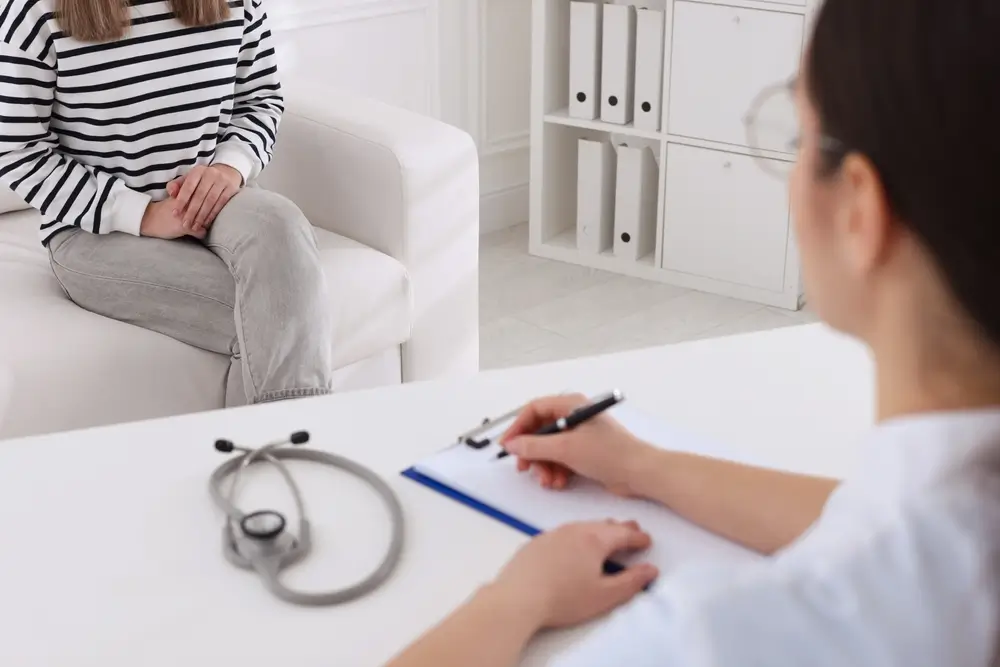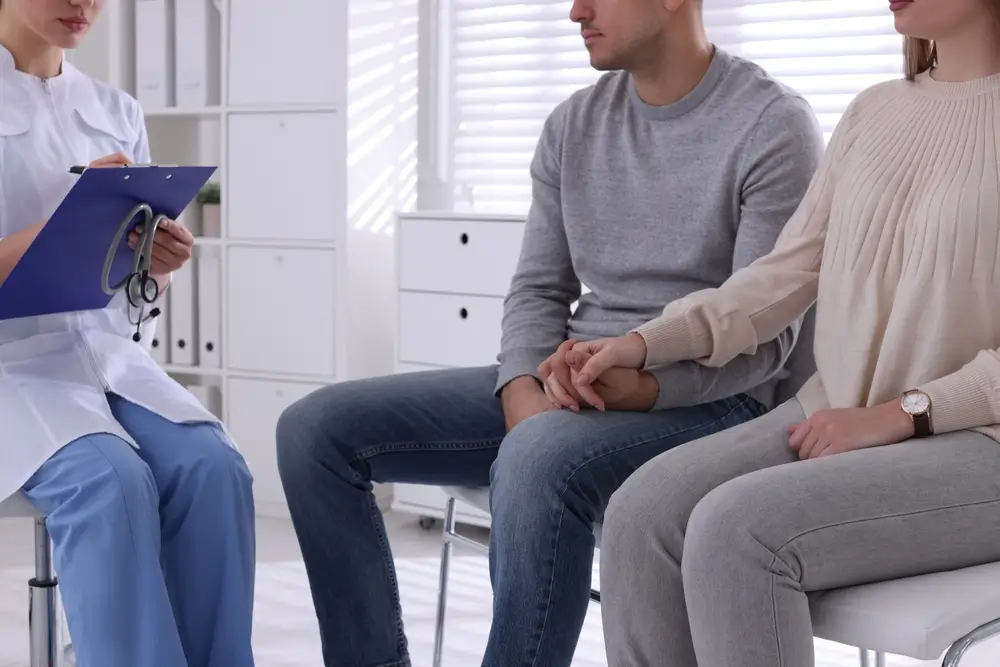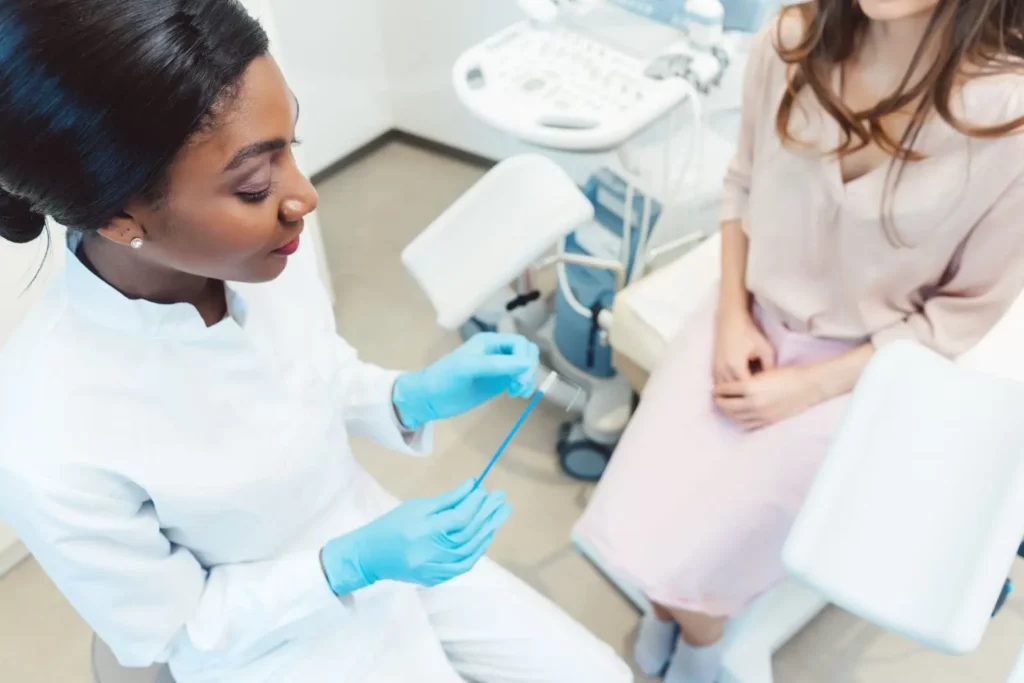Discovering that you have a sexually transmitted disease (STD) can be overwhelming, and it’s normal to feel a mix of emotions—from fear and shame to confusion. However, taking prompt, informed steps can help you manage the condition effectively and protect your health. In this article, we will guide you through the essential actions you can take to understand your diagnosis, seek the right treatment, and prevent spreading the infection to others. Here’s what you need to know to approach this situation with clarity and confidence.

Understanding STDs
STDs, or sexually transmitted diseases, are infections primarily spread through sexual contact. They affect millions of people globally and can have significant health impacts if not managed properly. By understanding what STDs are, the types you might encounter, and how they are retransmitted, you’ll be better prepared to protect yourself and your partners. Below, we’ll dive into the basics of STDs, the most common types, and the ways they are transmitted.
What are STDs?
STDs are infections caused by bacteria, viruses, or parasites transmitted through sexual activity. They can impact various parts of the body, including the genital area, mouth, throat, and even internal organs if left untreated. While some STDs can be cured with medication, others are lifelong infections that require ongoing management. Awareness of the symptoms, potential complications, and available treatments is essential for maintaining good sexual health.
Common Types of STDs
There are numerous types of STDs, each with distinct characteristics and treatment needs. Some of the most prevalent STDs include:
- Chlamydia: A bacterial infection that can cause painful urination and abnormal discharge but is often asymptomatic.
- Gonorrhea: Another bacterial infection similar to chlamydia but potentially more severe if untreated.
- Syphilis: A bacterial infection that progresses through several stages, leading to serious health issues if left untreated.
- Herpes: A viral infection that causes painful sores on the mouth or genitals, with periodic outbreaks throughout life.
- Human Papillomavirus (HPV): A virus with various strains, some of which cause genital warts, while others are linked to cancer.
- HIV/AIDS: The virus that attacks the immune system, leading to acquired immunodeficiency syndrome (AIDS) if untreated.
Understanding these common STDs can help you recognize symptoms early and seek the right medical care promptly.

How Are STDs Transmitted?
STDs are primarily transmitted through sexual activities, including vaginal, anal, and oral sex. However, they can also spread in other ways:
- Skin-to-Skin Contact: Some infections, like herpes and HPV, can spread through skin contact, even when no symptoms are present.
- Blood Transfusions and Sharing Needles: HIV, syphilis, and hepatitis B can spread through contact with infected blood, especially via shared needles.
- From Mother to Child: Certain STDs, such as HIV and syphilis, can be passed from an infected mother to her child during pregnancy or birth.
- Shared Personal Items: Though less common, sharing items like razors or needles can transfer some infections.
Awareness of these transmission methods can help you take preventive measures and encourage open conversations with partners, ensuring mutual protection and reducing the spread of STDs.
What to Do If You Have an STD
If you’ve received an STD diagnosis, taking action quickly is crucial for both your health and the well-being of others. Knowing how to respond and care for yourself in the aftermath of an STD diagnosis can make a big difference. Below, we’ll walk you through the steps to manage the condition responsibly, reduce transmission risks, and ensure a path toward better health and peace of mind.

Recognize the Signs and Symptoms
Early signs of an STD can vary widely and might include unusual discharge, itching, pain during urination, sores, rashes, or no symptoms at all. Recognizing these symptoms early helps in prompt diagnosis and prevents potential complications. Some STDs can progress without noticeable symptoms, so awareness of common signs and regular screenings, even when asymptomatic, is key to maintaining health.
Get Tested as Soon as Possible
If you suspect you have an STD or experience any symptoms, get tested right away. Many clinics, health centers, and doctor’s offices provide STD testing, and there are even home testing kits available for certain infections. Testing is straightforward and may involve a urine sample, blood test, swab, or physical examination. Prompt testing not only ensures a timely diagnosis but also enables you to receive proper treatment sooner, limiting the risk of transmission to others.
Consult a Healthcare Professional
Once you’ve been tested, consult a healthcare provider who can interpret your results and guide you through your treatment options. Health professionals are experienced in discussing STDs with sensitivity and can help answer any questions you may have. They’ll also provide advice tailored to your condition, lifestyle, and health goals, helping you make informed decisions for your health.
Start the Recommended Treatment Immediately
Begin treatment as soon as it is prescribed to prevent complications and improve recovery chances. Treatment may involve antibiotics, antivirals, or other medications, depending on the type of STD. It is essential to complete the full course of medication, even if symptoms subside, to ensure the infection is fully eradicated. For viral STDs that aren’t curable, like herpes or HIV, medication can help manage symptoms and reduce the likelihood of transmission.
Inform Your Current and Past Sexual Partners
One of the most responsible actions after an STD diagnosis is to inform your sexual partners, past and present. By letting them know, they can also get tested and seek treatment if necessary. Open communication may feel awkward, but it’s an important step in stopping the spread of STDs. Many health departments and clinics offer anonymous notification services to help with this process if needed.
Take Steps to Prevent Re-infection and Future Transmission
To prevent re-infection or passing the STD to others, practice safe sex by using condoms or other barrier methods and avoid sexual activity until treatment is complete (and, for some infections, until a follow-up test confirms the infection is cleared). Regular testing, especially if you have multiple partners or are in a new relationship, can help you detect any future infections early. Being vigilant about protection helps ensure you and your partners remain healthy.
Address Emotional and Mental Health Needs
An STD diagnosis can stir a range of emotions, from embarrassment and guilt to anxiety and sadness. Take time to address these feelings, and consider speaking to a counselor or joining a support group if needed. Remember that having an STD does not define you or your worth, and there are people who understand what you’re going through. Emotional support can play a big role in managing the experience and moving forward with confidence.
Educate Yourself on Prevention and Protection
Learning about STDs, safe sex practices, and prevention methods can empower you to take control of your sexual health. This education helps you make informed choices and recognize early symptoms in the future. Resources are available online, at healthcare facilities, and through community organizations, offering everything from advice on effective birth control to understanding risk factors and vaccinations, such as the HPV vaccine. Knowledge is power, and staying informed helps you protect yourself and others.
Taking these steps can make an enormous difference in managing your health and supporting the well-being of your community. Remember, you’re not alone—support and resources are available every step of the way.
Take Charge of Your Sexual Health with Aether Health
Facing an STD diagnosis can be challenging, but taking proactive steps to address it is a powerful choice that protects both your health and those around you. Recognizing symptoms, getting tested promptly, following prescribed treatments, and educating yourself are essential actions to manage and prevent STDs effectively.
At Aether Health, we understand the importance of accessible, confidential, and compassionate care. Our team is dedicated to helping you maintain optimal sexual health through accurate testing, expert consultation, and personalized treatment plans. As a trusted healthcare provider, Aether Health is your leading choice to get tested and receive quality care every step of the way.
Take Control of Your Health Today
Don’t wait—schedule your STD test with Aether Health now and take control of your sexual well-being. Early testing and treatment can make a significant difference. Contact Aether Health today, visit our locations, or speak with our team, or visit us online to book your appointment and prioritize your health.



